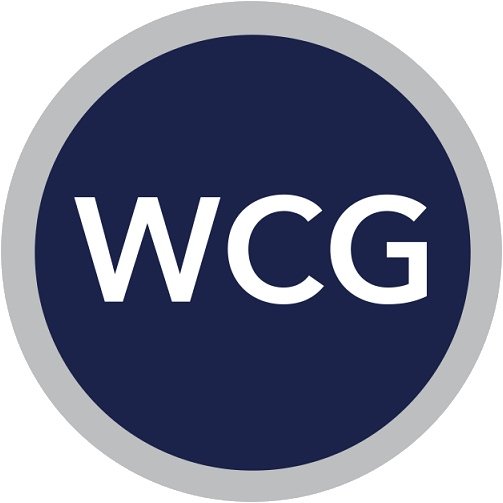Common Resume Mistakes to Avoid During Your Next Job Hunt
Several years ago, I was applying for my first position in career education. I was a doctoral student seeking graduate assistantships to support my finances, and this position required providing resume reviews for students. Clearly, my own resume had to be solid.
I’ll never forget walking into my interview and the first thing said was, “you know you forgot to put your education on your resume?”
Whoops. Well, that’s not a great start for this interview. Luckily, this story has a happy ending. I was offered the position, critiqued my own resume as my first task, and years later now write resumes for executives across multiple industries worldwide. But, it made for an embarrassing start (though great story) to my career, and I understand how lucky I am that I was still offered a position.
Resume mistakes happen, but they are entirely avoidable with a solid editing process. I had two sets of eyes reviewing my resume, with neither catching the missing education. Let’s explore some common resume mistakes, methods to avoid them, and how the Wilbanks Consulting Group can be a valuable asset in constructing an error-free resume that works for you.
Common Resume Mistakes
Over the years, the Wilbanks Consulting Group team and I have seen numerous resume mistakes. Here are some of the most common resume mistakes to avoid during your next job hunt:
Being vague. Your resume should tell a story, which involves several pieces. They want to understand not only what you’ve done, but also what you have accomplished and how you did it. As an example, which of these do you think delivers a better overview for a resume?
Dealt with employees in remote office
Led team of 15 employees remotely driving $10M annual sales through strategic product marketing, collaborative leadership with C-suite, and engaging external vendors.
If your resume states the obvious, it is boring and unlikely anyone is reading it. The first statement (A) is boring, obvious, and doesn’t speak to what someone did in a role (especially if they did it well). The second one (B) provides much more context, metrics, and includes accomplishment. It’s much more likely to grab the attention of a recruiter or hiring manager, and encourage them to continue learning about you as a candidate.
Using a “one-size-fits-all approach”. Similar to being vague, there is no singular resume that will be effective in responding to every job ad. People in these fields review hundreds if not thousands of resumes, and can easily spot candidates that put in little to no effort. Regardless of how amazing of a candidate you could be, failing to tailor resumes often leads to your resume being thrown in the recycling bin.
You should spend between 15 and 20 minutes tailoring your resume to each job description of interest. Review the job description for keywords and phrases, then compare it to your resume. Does it match in terms of qualifications, skills, experience needed? Spend the extra time to ensure your resume answers the job description, as it provides a much higher chance for yours to be seen.
Missing information. Referring back to my mishap of entirely forgetting the education section on my resume, it’s common. I like to tell my resume clients, “there’s a reason why I have a 50 item checklist”, because again, it is easy to forget something when there are what seems like a million items to remember.
Too much information. Recently, I worked with a client who had an 11-page resume. The standard is between one and two pages. Too much information overwhelms your reader. They will check out before they even begin to read, because visually it’s a lot to consume.
Visual mess. Often paired with too much information is clutter, poor font choices, odd formatting, or other visual choices that are not aesthetically pleasing. This can be somewhat subjective, so it is important to share your resume with several people or a professional career coach to elicit feedback on formatting and any design elements. Use of different fonts can irritate readers or even give a headache, while certain formats make information difficult to digest or cannot be read by some computers.
Ignoring ATS. Speaking of computers, you cannot be a job seeker in today’s modern world without understanding the importance of ATS, or applicant tracking system. With over 99% of Fortune 500 companies using ATS to manage and track applicants, it has become an incredibly powerful tool for hiring managers and recruiters to streamline the hiring process.
ATS is a software used to narrow down applicants from a candidate pool, allowing recruiters to easily search resumes and connect with individuals who best match the job description. Therefore, your resume should need to be built with ATS in mind. Consider the use of fonts, formatting, keywords, phrases, and bullet points while limiting graphics, jargon, and other components that do not communicate well with ATS software.
Poorly written summary. After your contact information often sits the summary, which is the invitation to who you are as a professional. It’s your pitch, sale, brand, and you don’t have room for error. First impressions are everything, right? You want to grab your reader by having an extremely well written summary that tells an employer who you are and illustrates the impact you could have in your new role.
Incorrect contact information. I joked with a client once about her not getting any calls because her phone number had been listed wrong on her resume, when in fact, her phone number was listed wrong on her resume. It happens. As soon as we released a resume with the correct contact information, she started hearing from recruiters.
The Simple Solution? Hire a Writer!
If it seems complicated and a bit overwhelming, you aren’t alone. And if it makes you feel any better, resume writers and career coaches also often struggle to write their own resume. It is difficult to convey a decades-long career into a two-page document that effectively demonstrates skill set, displays accomplishments, narrates past experience correctly, and moves someone forward in their career.
It is 100 times harder to do it for yourself. We fear saying the wrong thing, saying the same thing, bragging too much, saying too little, saying too much, and the list goes on and on. Our fear manifests frequently into writer’s block, and you sit there for hours, staring at a blank screen.
Let the team at the Wilbanks Consulting Group work with you 1:1 to learn about who you are as a professional, your career goals, experience, skillset, and personality. We then work with you to gather vital data to build a customized resume tailored to positions that capture your interest.
Find your Future Career Today
The Wilbanks Consulting Group is a team of human resources (HR) professionals with decades of experience working with clients from diverse backgrounds and industries. We work with you to highlight your unique value through customized resume design, helping you land interviews for the future career that you deserve. Contact us today to craft your perfect resume.




